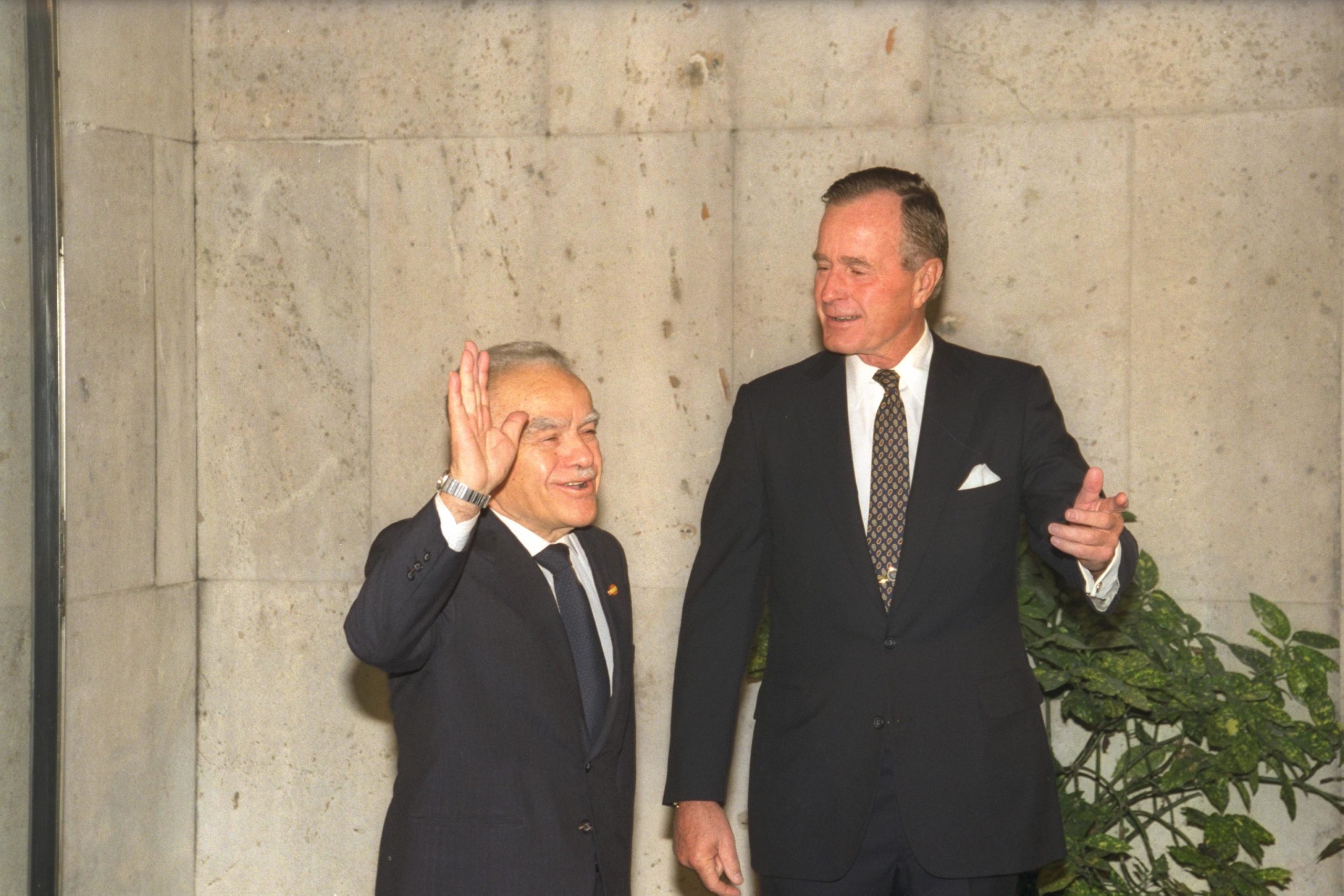
On March 6, 1991, President George H.W. Bush tells Congress, “The time has come to put an end to the Arab-Israeli conflict.” For the next eight months, intensive shuttle diplomacy by Secretary of State James A. Baker III culminates in the Madrid peace conference at the end of October. The conference, co-chaired by Bush and Soviet President Mikhail Gorbachev, is attended by Israeli, Egyptian, Syrian, and Lebanese delegations, as well as a joint Jordanian-Palestinian delegation. For the first time, all of the parties to the Arab-Israeli conflict have gathered to hold direct negotiations.
Complete the following table for October 1991. You’ll find answers in the events and documents preceding the Madrid peace conference, the assurances the United States offered delegations before the conference, and the speeches made in Madrid. CIE Founding President Ken Stein’s introduction to Bush’s Madrid speech also offers guidance to what everyone wanted. How would the table change to represent today’s reality?
|
Entity |
Interests and Goals |
Willingness to compromise? |
|
Israel |
|
|
|
Jordan |
|
|
|
Palestinians (as part of the Jordanian delegation) |
|
|
|
Egypt |
|
|
|
Syria |
|
|
|
Lebanon |
|
|
|
United States |
|
|
|
Soviet Union (now Russia) |
|
|
For more insights on national interests, click on the following links (in the interviews, searching for “Madrid” is a good way to start):
- Great Powers, the Middle East and the Cold War
- American Officials on Zionism, Israel, the U.S.-Israeli Relationship and Resolving the Arab-Israeli Conflict, 1922-Present
- Understanding Israel’s Middle Eastern Neighbors: Between the Unique and the Universal
- Syrian-Israeli “Secret” Talks Commence
- Shepherdstown Peace Talks With Syria Conclude
- March 20, 1992, Ken Stein Interview with Simcha Dinitz
- June 10, 1992, Ken Stein Interview with Peter Rodman
- Interview with Prime Minister Yitzhak Rabin Discussing Lebanon, Syria and Palestinian Track
- Interviews with Saudi Prince Bandar Bin Sultan on Arab World and Palestinian Leaders
- Israel and the Arab-Israeli Conflict Timeline
